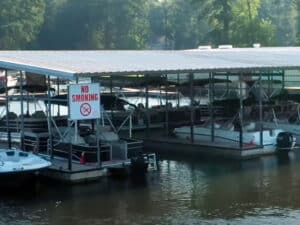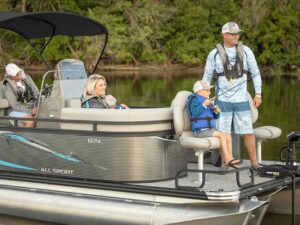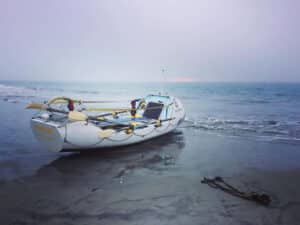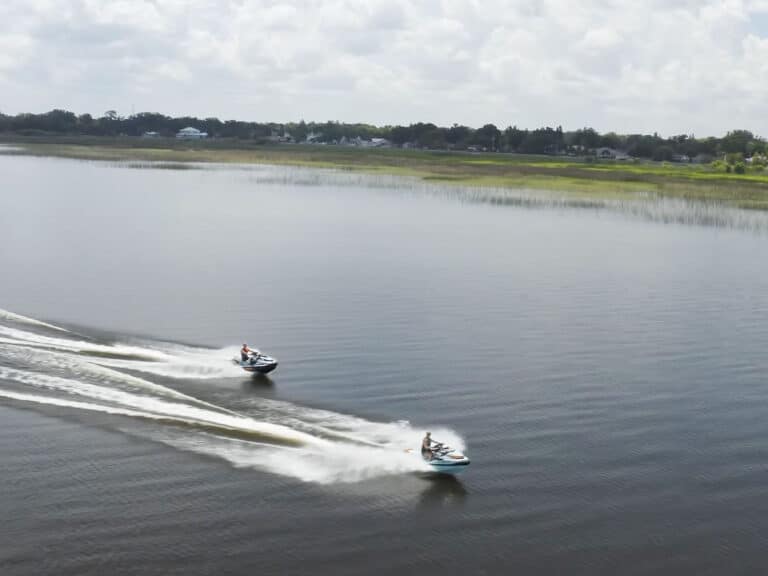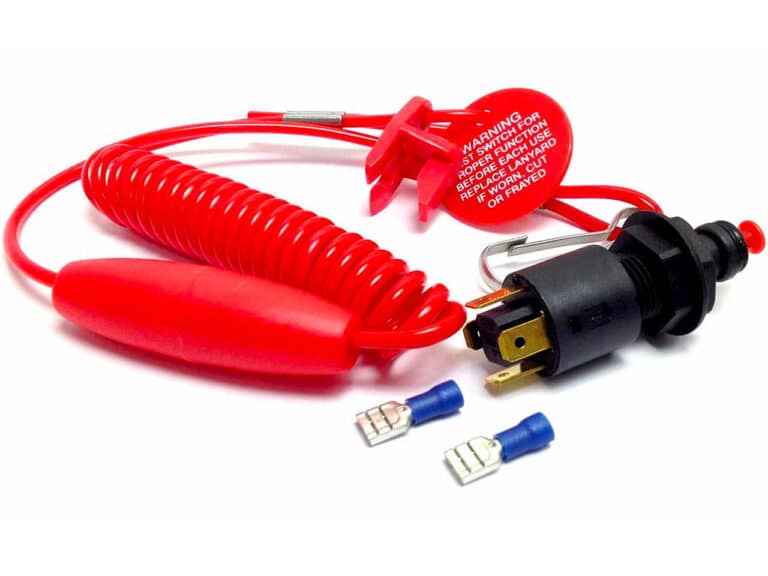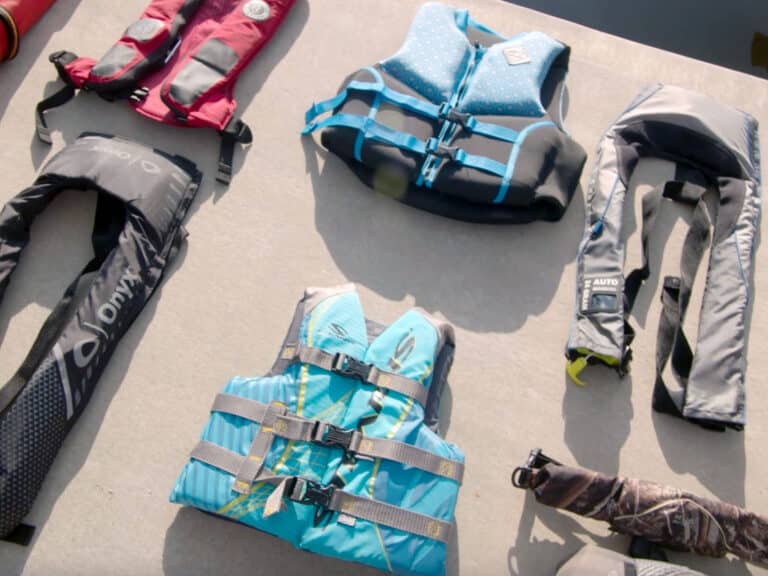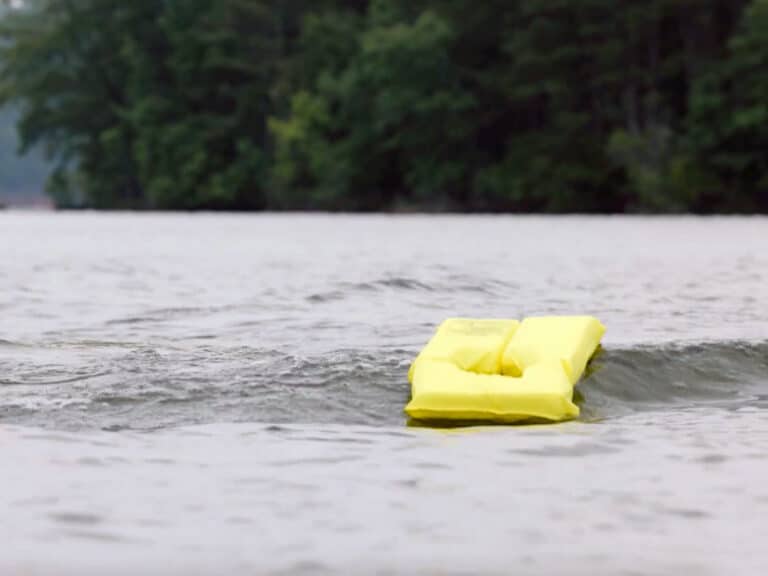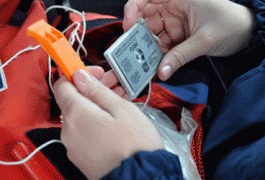
When it comes to life jackets, there can be a big difference between what the U.S. Coast Guard requires and what you may need in an emergency. The requirement for having life vests aboard is obvious, but should you go overboard, keeping your head above water isn’t the only thing you’ll need to worry about.
In many overboard scenarios, you’ll also need to be found. That’s why my favorite life jackets have something in common: pockets.
Choosing a brightly colored life jacket with reflective strips is a good start, but no matter how bright the material, it gets dark at night. Rescuers searching for even the most colorful life vest will have to put a light directly on you for the color or reflective strips to matter. Pockets allow you to tie in a few modern and extremely effective active signals so that your life jacket, and you, will get found easier and faster.
Bring a Light
Absolutely nothing screams “Look over here!” like a waving flashlight. A small waterproof flashlight that you can point in the direction of a searching boat or aircraft can make a profound difference—and it’s handy around the boat even if you don’t end up in the drink. Search and rescue crews use night vision technology, allowing them to see even the faintest light from great distance. But be careful: night vision goggles are not very good at detecting some types of LED lights. For that reason, I recommend investing 20 bucks in a U.S. Coast Guard approved strobe light and attaching it to your life jacket.
Flash Other Boaters
In daylight, a simple signal mirror makes a foolproof signaling device. Glass is better than plastic, and using them–like almost anything else–requires some practice, but that can actually be a good time. Sitting on deck trying your best to flash (literally) other boaters is good clean fun. You’ll be surprised how far you can reach out with a 3-by-4-inch piece of glass. It never runs out of batteries, and it can attract a searching vessel or helicopter from miles away.
Put Your Lips Together and Blow
A good whistle is next to free (at a decent boat show, anyway) and falls into the better-to-have-it-and-not-need-it category. Should you end up in the calm and fog-covered waters off the bayou, you can use the high-pitched screamer to signal passing boats. The last time I heard one used–quite effectively–was when a “friend of mine” tripped off his own boat while pulling in the fenders. Rookie.
Read Next: Man Overboard Miracle: How A $3 Whistle Saved Mark Wheeler’s Life
Keeper the Flame
I’m not even kidding a little bit about this one. I’ve picked up boaters and kayakers near-frozen after a night on some remote shore they swam to after being tossed into the water. Even in the busiest of ports, beaches may be the closest swim from where you go overboard, but too far from anywhere to walk. The barrier islands just north of the mouth of the Chesapeake Bay (my back yard) are nothing more than long stretches of sand and grass surrounded by more nothing.
That’s why you should always carry the tools to start a fire in your life jacket. A Bic lighter and a couple of those trick birthday candles that won’t blow out make a compact and reliable fire kit; others swear by waterproof matches and cotton balls dipped in Vaseline. Whatever method you choose, make sure to practice when the only thing at stake is your marshmallow roasting schedule. That is advice I often give boaters, and often enough, they just laugh. If you think I’m being silly, then read my first post and get back to me. I won’t hold your chuckle against you, but I am right about this one.
Forget the Odds. You Can Beat Them
I know that a personal locator beacon costs more than the life jacket, but personally I think they should be built in. On my own life vest (yes, I carry one with me from boat to boat) I have a personal locator beacon tied into the top right pocket. It is registered, checked and ready to go. An accoutrement too far? I don’t think so. The Coast Guard only finds 40 percent of people who fall overboard offshore. That’s four out of ten. You can beat those odds for a little over 300 bucks.
If you don’t do it, then you’re going to end up floating around out there with this blog post stuck in your head, beating yourself up for not listening to me. Hopefully, you at least bought the flashlight, because you may be in for a long night.

